The continent of Africa evokes emotion: on one hand there is the impressive landscape, African tribal cultures attached to their roots, and the massive land mammals that still roam wild.
But there is another side of Africa, which is much less romantic, brought to the world’s attention through Live Aid and Sally Struthers’ commercials: its people are some of the poorest on the planet, and lack even the basics, such as water, to survive.
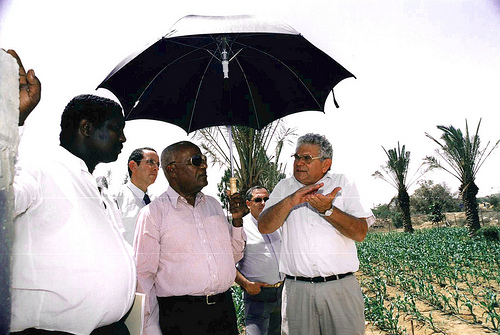
While not all of Africa is dry, one of the biggest battles for the continent is combating desertification and poverty, two issues that go hand in hand. Looking the problem straight in the eye and providing practical solutions to people in Africa today is Israeli drip irrigation pioneer Prof. Dov Pasternak.
Originally from Ben Gurion University in Israel, Pasternak has transplanted his life in Israel to Niger. Working for IPALAC (the International Program for Arid Land Crops), an Israeli initiative designed to share relevant aspects of the Israeli experience in combating desertification, Pasternak has developed a pilot project in Africa which uses his expertise on arid land agriculture and the Israeli invention — the low pressure drip irrigation systems (LPDI) — to help farmers grow crops.
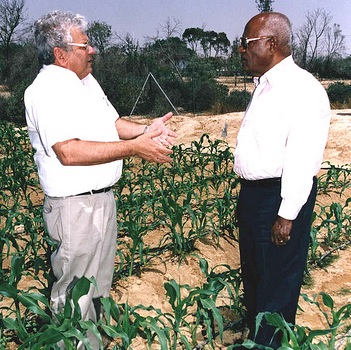
In Africa, Pasternak has also joined the International Crops Research Institute for the Semi-Arid Tropics (ICRISAT), where he leads an international program.
“I am showing that an African family can make a relatively good living from a 500 square meter drip irrigated vegetable field,” he says.
From irrigation to solar greenhouses
Among Pasternak’s achievements, he has pioneered the practice of using saline water for irrigation, has developed novel “solar” greenhouses and systems that produce crops without chemical sprays, and co-developed a system that allows farmers to supervise agricultural operations remotely. His work follows a theme: research and systems that help farmers reclaim degraded land.
“UNESCO was the first donor for IPALAC. They told us to concentrate in Africa. Which we did,” he says. “After a while, the work in Africa became so intensive that I decided to resign my position as the director of the Institute of Agriculture and Applied Biology at Ben Gurion University and move to Africa to be able to better conduct and supervise IPALAC activities.
Since 2001, Pasternak is working as a principal scientist in an international agriculture research institute called ICRISAT. “This institute has a research station in Niger where I am working. I started [it] by myself,” he says. “Today the IPALAC group has eight scientists; some full time other part time. I am heading this group.”
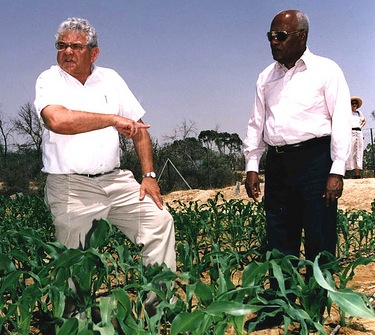
His work has made such an impact in Africa that the Israel Ministry of Foreign Affairs international development organization — MASHAV — has recently appointed Pasternak as the Israeli representative for Western Africa. Much of his time will be focusing on the new MASHAV appointment.
Farmers of the future
“This new ‘division of labor’ will allow me to implement on a large scale the crops, technologies and systems that I have developed,” Pasternak says.
For example: Pasternak has created a product called the African Market Garden, which is a low-pressure drip irrigation system that brings to the poor farmers of Africa all the advantages of drip irrigation at a fraction of the cost. The team has installed about 2,500 units in eight African countries.
Another project is based on an ingenious land use combining trees, annual crops and other “service providing plants.” Pasternak explains the concept: “I am also introducing fruit trees from all over the world [through IPALAC] and selecting the most promising ones. We have now in our fruit trees collection about 150 varieties. I am continuously selecting better vegetable varieties for the region and better varieties of field crops such as Roselle, cowpeas etc.”
In addition to the technologies and research Pasternak is giving to Africa, he is currently developing a new education program for village primary schools that he calls ‘Farmers of the Future.’ This way, the future generations will not only have technologies, they will know how to use them too.
Update, 2017, Dov receives lifetime achievement award
This year (2017) Dov was honored with a Lifetime Achievement Award from the Society for International Development, a global association of professionals dedicated to sustainable economic, social and political development. Dov received the award for his outstanding contributions to agriculture in Africa.
The term “outstanding contributions” can be tossed around pretty loosely. In Dov’s case his contributions are real and truly impressive. Here’s a summary:
He identified and helped commercialize dozens of new varieties of fruit trees and vegetables ideal for Africa’s soil and climate conditions, then trained thousands of farmers to grow them. Many of these crops are highly nutritious, like:
- Moringa: considered by many to be the most nutritious vegetable in the world and spreading rapidly throughout Africa.
- Cowpea: Niger’s second most important crop and a rich source of protein for humans and animal feed for livestock
- Introduced “Pomme du Sahel” (apple of the Sahel) in West Africa. The fruit is now grown on over 20,000 acres in Niger, Burkina Faso, Mali and Senegal and produces over 100 million pounds of nutritious fruit a year.
- Developed technologies to grow crops on infertile land. He named the approach BDL (Bio-reclamation of Degraded Land) and introduced it to 30,000 families in Niger and Senegal.
- Reverse engineered drip irrigation (which he helped develop in Israel 30 years before) for rural farmers in Africa. Paired with training in production of high value vegetables, he introduced it as the “Africa Market Garden” to farmers in Niger, Benin, Burkina Faso, Mali and Senegal.
Finally, Dov created Farmers of the Future. Dov describes FOF as the pinnacle of his career. By teaching women and children to approach farming as a business, Farmers of the Future has the potential to lift millions out of poverty. At a time when African farmers are struggling to survive and thousands are migrating in search of better opportunities, Farmers of the Future enables people to survive and prosper (at least in relative terms) without leaving home. It’s a powerful concept and the need for it grows daily.

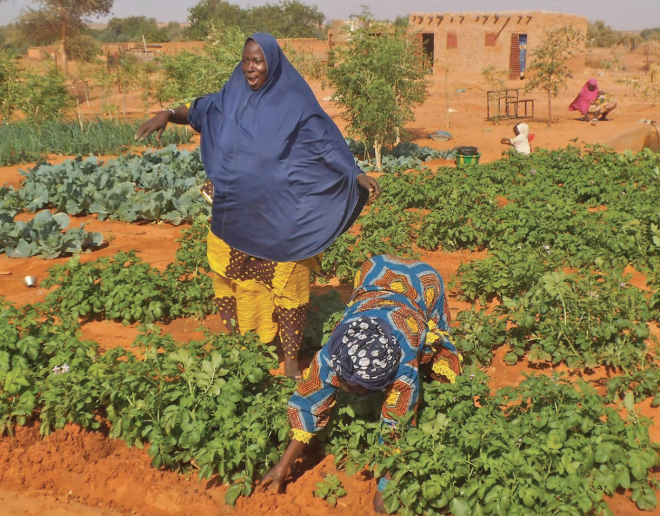
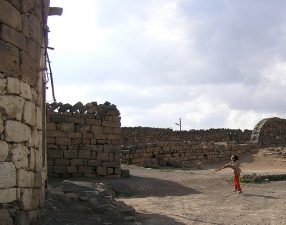
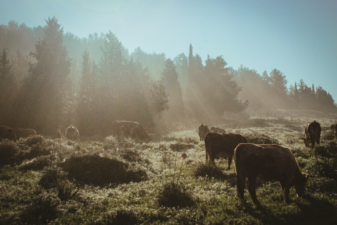
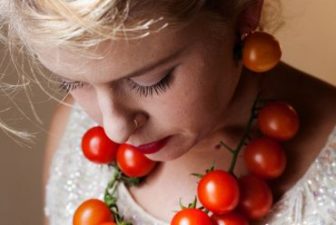
One thought on “Growing An African Garden Market in Niger”
Comments are closed.